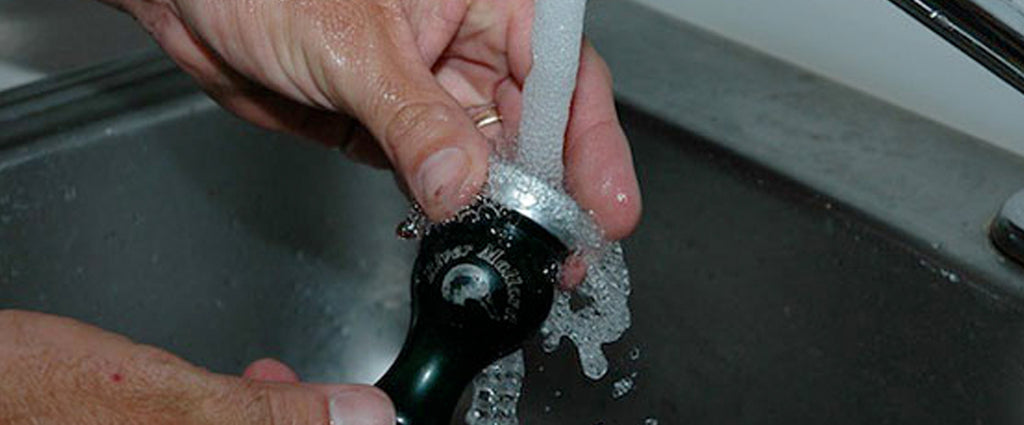Haydel's Blog
Spring Cleaning

With this season behind us we must now start preparations for next year. Decoys need repair, motors tuned up, and don’t forget our calls need attention as well. Most calls will have some build up of saliva, mud, and rice stubble, pieces of sandwich and worse tobacco. Take the time to carefully remove these by running warm water through the backside of the call. Flossing between the reeds and sound tunnel. Check your reeds; any, which are bent or chipped, should be replaced. Calls that get above average use should usually have the reeds replaced once a year. Please take note on how the call is tuned before taking it apart. Even scribe the surface of the barrel and tunnel with a sharpie it need be. It will ease the frustration of putting the call back together and give you a starting point.
When tuning a call, keep these things in mind:
- Shortening the working length of the reed will raise the pitch and make it a little easier to blow.
- Lengthening the reed; the opposite is true.
- On double reeded calls reeds need to be flush to one another with the dimpled reed on top.
After your call is back in shape just don’t throw it in a sock drawer…PRACTICE! A good time to do this is in the car going to and from work listening to an instructional cassette or CD (keeps the wives happy). You do however get some strange looks from other drivers at times. I like to mess with other drivers in front of me at a light. I’ve had them completely miss the light looking around for that duck!
Summer is also a great time to get your kids started calling! You can work with them yourselves or even invest in a video to get them started off on the right foot. One very important point is to start them off with a good call not a squeaking hand me down. This will only develop bad habits. A good double reed is easier to get results. It is important in learning to call to limit the length of your session to about fifteen minutes. Fatigue and boredom will lend at no will to poor calling skills. The most important thing I try to stress is that if you’re not getting the desired sounds; change the way you’re blowing. That means mouth position or how you attack the note. Lots of people I work with have a problem changing their style and get the same undesirable tones. The DUCK is in there you just have to find it! Until next time look behind you at the next light—Tika- Tika- Tika!









